Week 7: An IBJ Client’s Release from Prison; Kampong Phluk
This week, I had the chance to observe the workings of the justice system first-hand. The IBJ client whose appeal hearing I attended several weeks ago was set to be released from prison in Takeo Province. As you may recall, his sentence had been reduced from three years to six months. In fact, the Appeals Court found that he was not guilty of drug trafficking as originally charged, but only drug use. At the time of the appeal, he had already spent one year and nine months in prison, much longer than the maximum six-month sentence.
The Court announced its ruling a few days after his appeal hearing. After that, the court clerk took about two weeks to record the judgement. According to Sophoes (the IBJ lawyer), this process can take a lot longer if the defendant’s lawyer does not specifically ask the court clerk to complete the judgement as soon as possible. It was lucky in our case that the clerk did not require a bribe, and was willing to expedite the process. We joined Sophoes on his journey to deliver the judgement to the prosecutor’s office in Takeo.
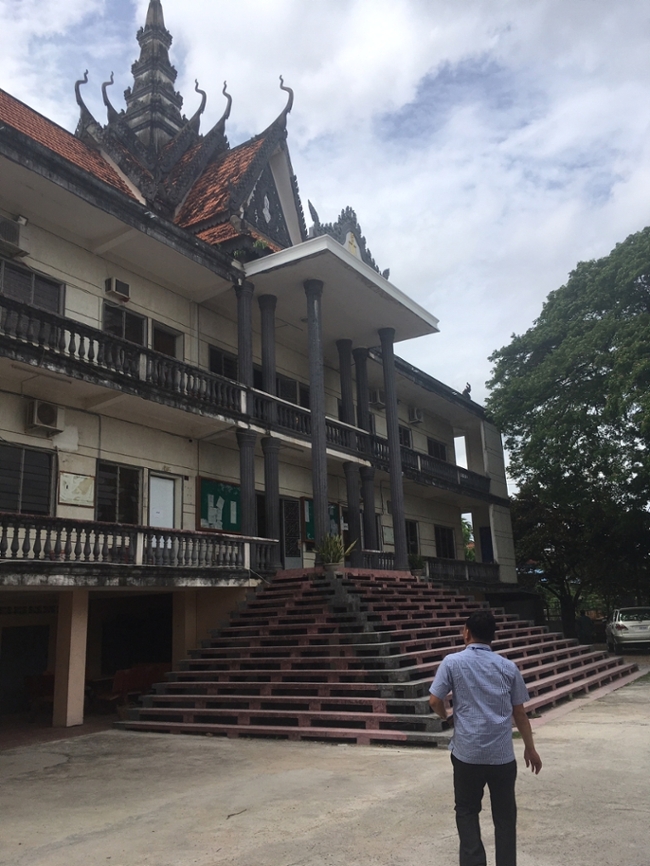
Sophoes approaches the steps of the Takeo Provincial Court, which houses the Prosecutor's Office
The drive to the provincial court building in Takeo province takes two hours from Phnom Penh. This trip was a testament to the dedication of IBJ lawyers. Not every lawyer would be willing to hand-deliver a client’s judgement to the local prosecutor – and that is only the first step in ensuring the client’s release! After receiving the judgement, the prosecutor should write a release letter for the prisoner. Again, the process can come to a standstill here. Following the drive to Takeo, we spent 2.5 hours outside the provincial court waiting for the prosecutor to complete the letter. That pressure spared the client a night in jail, if not more.
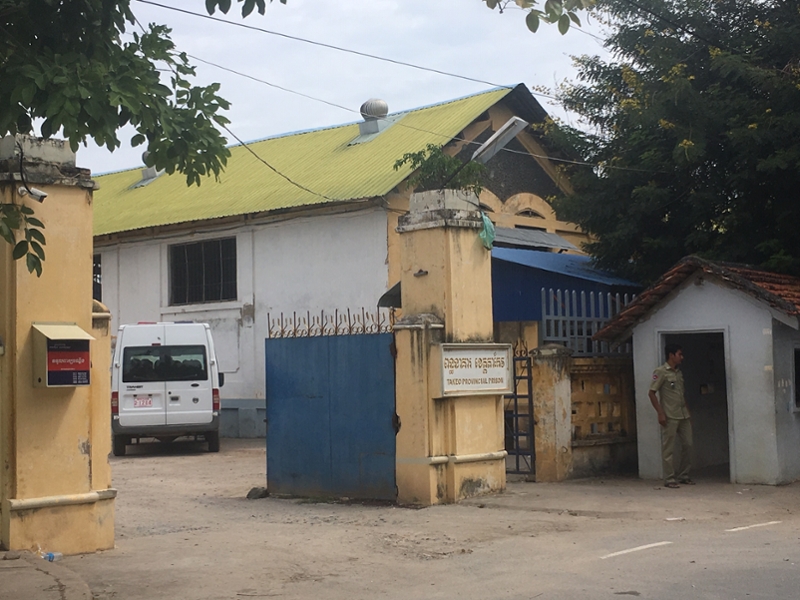
The entrance to Takeo Provincial Prison, on the same block as the Court
Another hour passed in front of the prison once we delivered the release letter, but Sophoes was committed to meeting and congratulating his client. He emerged from the prison along with three boys who looked to be about thirteen years old. The age of criminal responsibility in Cambodia is fourteen—two years above the minimum age recommended by the UN Committee on the Rights of the Child—so these young boys should not even have been arrested. After being caught committing a petty theft, however, the officer not only arrested and charged them, but recorded their age as eighteen, which, beyond simply allowing that they be detained, meant they would be denied the protections afforded by law to minors, such as the right to counsel for a misdemeanor case (adults have that right only in felony cases). Even though the judge dismissed the case, the boys had already spent six months in jail. While the cells for minors, men, and women are separate, they all occupy the same prison.
Our IBJ client seemed exhausted but relieved when we spoke with him. Sophoes was able to translate for me and Simon, and we asked him a few questions about his trial and detention. He told us that 160 prisoners share the same room. From the outside, it looked like that room might be about 1250 sq. ft., which means each person has 7.8 sq. ft. of space. This estimate is confirmed by a Cambodian League for the Promotion and Defense of Human Rights study. He said it was not so bad, except that he was always hungry. They had only two meals a day, without much meat. On the justice system, he felt that the trial at the provincial level was not fair, but that the appeals court treated him fairly. He was very happy with his lawyer from IBJ. When we asked about his future plans, he told us he would live with his uncle, who was there to pick him up, and try to resume his work as a driver.
Before leaving, we heard the prisoners begin a series of Buddhist chants. I watched the bird sitting on the prison wall, and wondered how many prisoners had dreamed of being reincarnated as a swallow or dove.
More Adventures: Kompong Phluk
Kompong Phluk is one of the several “floating villages” on the Tonle Sap lake near Siem Reap. On the same weekend I visited Angkor Wat, I also traveled to the village so I could see the famous houses on stilts. It’s the end of the dry season, so the combination of rain and Himalayan snow melt has not yet caused the lake to rise and inundate the town. Once it does, the villagers will take a boat to school and temple, rather than a tuk tuk or car.
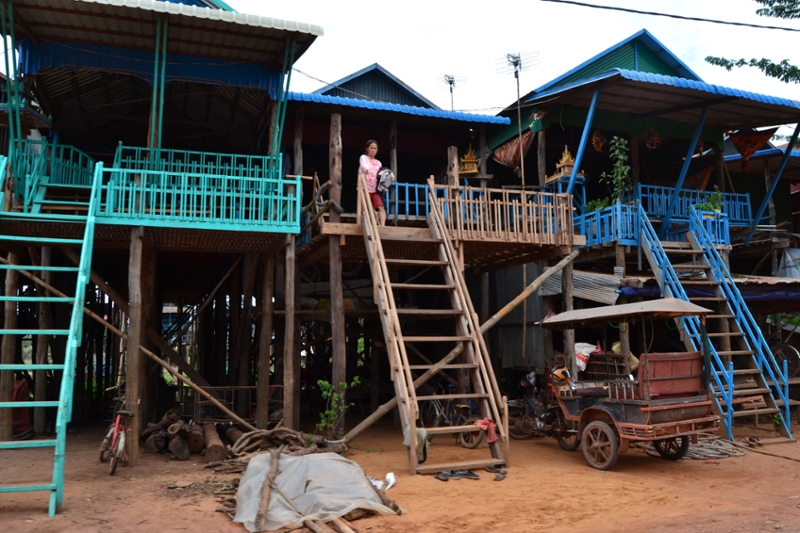
The "floating village" during the dry season
The dry season is actually the time that fishing occurs, and the Tonle Sap is the largest freshwater fishery in Southeast Asia. The lake is protected in the wet season, as the fish mate during this time, but when I stepped in a motorboat and went out on the water, many fishermen were wading waist-deep with nets. Seeing the village and the lake made stories I’d heard about the countryside come alive. The way of life there is certainly much more in tune with natural rhythms than city life, and it was nice to take that in for a few hours.
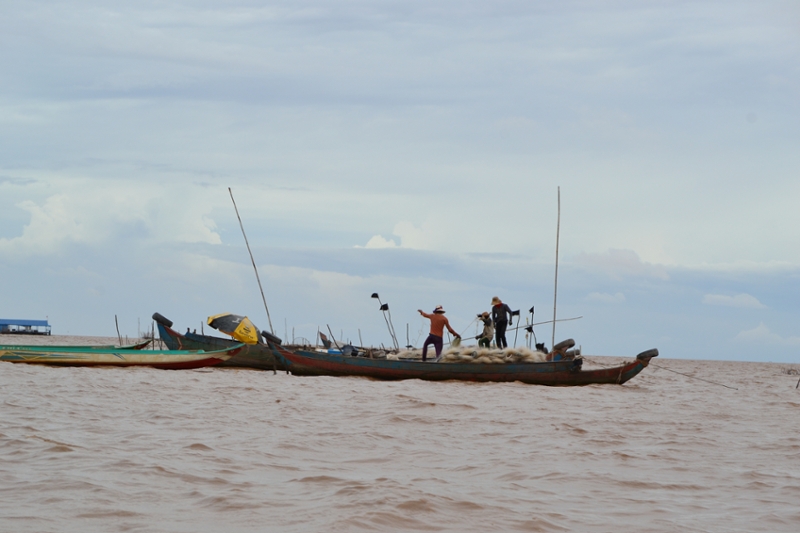
Fishing boats on the Tonle Sap
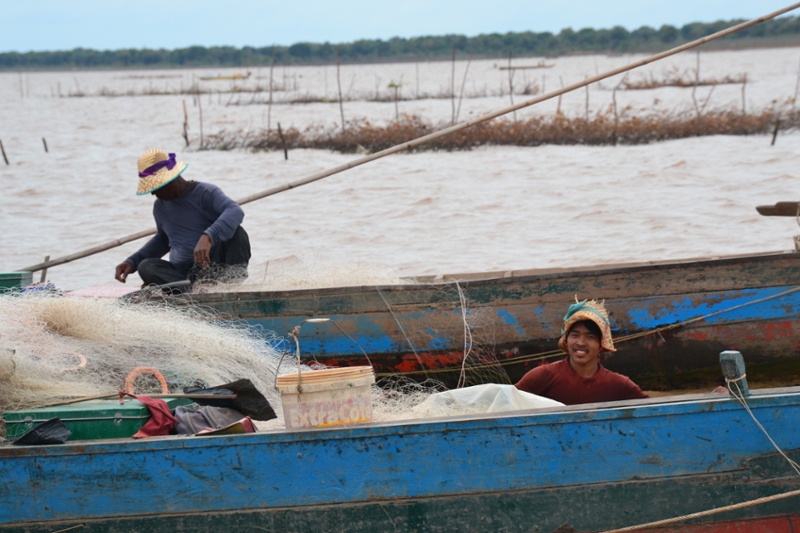
A fisherman smiles at the camera as he goes about his work